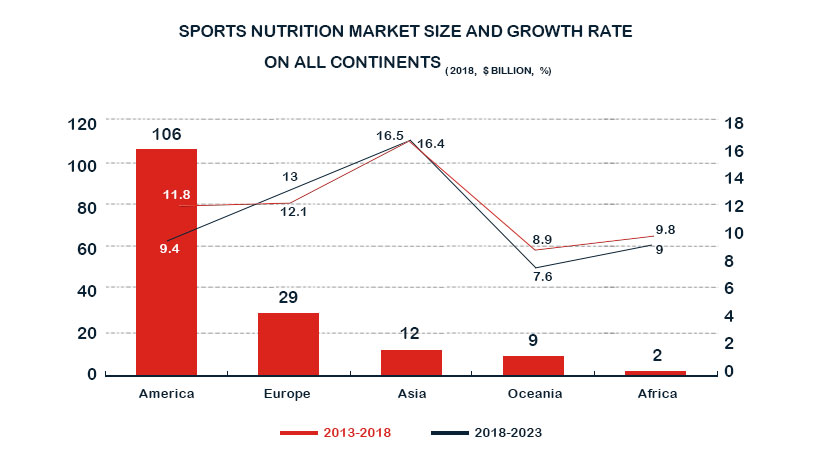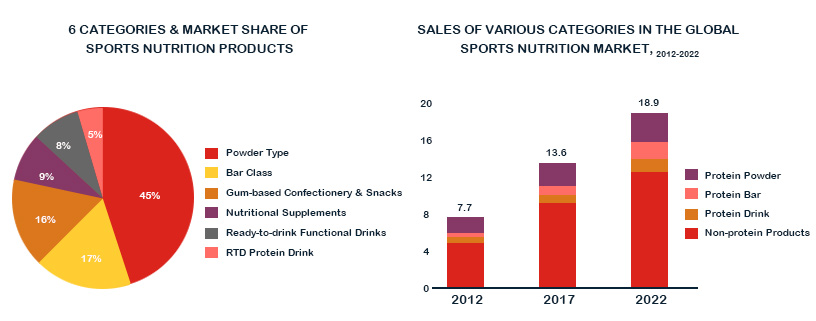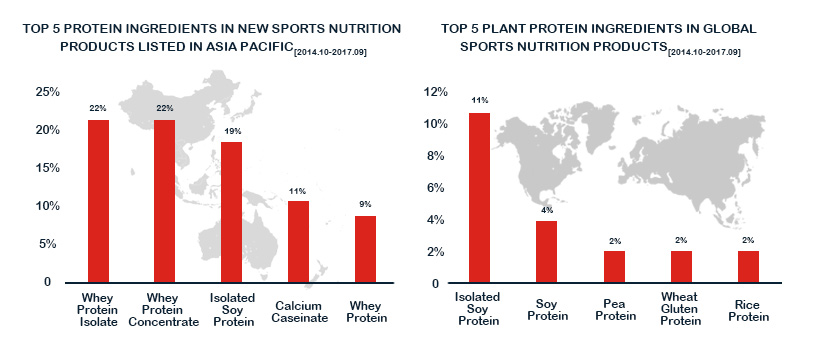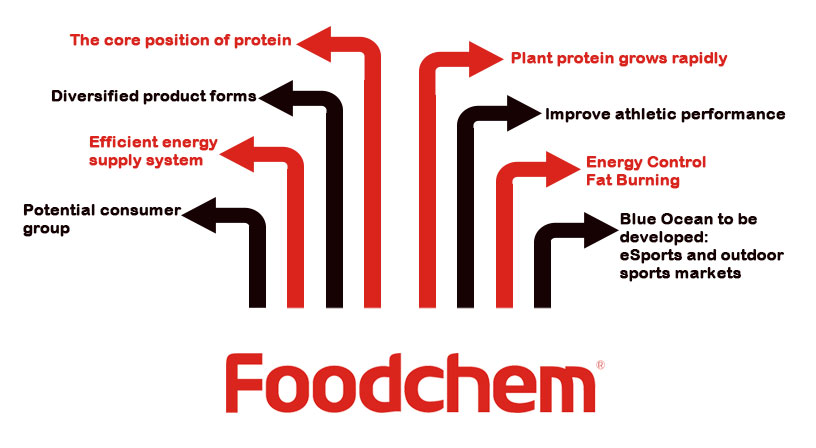FOODCHEM
Share:

Новости
Sports nutrition products raw materials and innovation direction
In recent years, the upgrading of national consumption has made healthy snacks a hot market. The concept of active life represented by healthy snacks is attracting a huge new generation of people, and the vast market potential shown has led food companies to identify it as an important strategic goal.
Foodchem conducted in-depth and insightful discussions on the application of whey protein in various hot areas, involving market segments such as healthy snacks, sports nutrition, and functional drinks. Among them, sports nutrition is one of the most widely used hot areas.
Overview of The Global Sports Nutrition Market
In 2018, the global sports nutrition market totaled $ 15.7 billion. The American market is thriving, with Asia accounting for only 7.6%, but Asia ’s performance on the average annual growth rate is very eye-catching. The growth rate in the past 5 years and the next 5 years will be above 16%.
Types of Sports Nutrition Products and Popular Ingredients
The powder type is the main type of sports nutrition products, accounting for 45%; protein bars / energy bars, gum-based confectionery and snacks rank second and third, respectively, accounting for 17% and 16%. Ready-to-drink products are becoming more and more popular, and their energy-efficient gels and Shot drinks, which are easy to eat and carry, are also growing rapidly.
Among the new sports nutrition products listed in the Asia-Pacific region in 2014-2017, milk protein still dominates the type of ingredients. Among plant proteins, soy protein isolates are most commonly used. Pea is more popular in North America, with a new product application rate of 5%, which is higher than the global average of 2%.
Among non-protein ingredients, branched-chain amino acids are the most popular raw materials, with an application ratio of 54%. HMB is another emerging raw material that deserves attention. It has a significant effect on increasing muscle fat and is particularly popular in Japan.
Sports Nutrition Product Innovation Direction
(1) Protein is still at the core
High protein content is the most popular claim for sports nutrition products. In addition, the ratio of protein to carbohydrate, functional peptides, amino acid ratio, and branched chain amino acid content have also become the key points of product differentiation and innovation.
(2) Improve athletic performance
For core user groups, promoting bone and joint health, improving limb flexibility, increasing blood oxygen content, extending endurance, promoting muscle growth and explosive power, and being able to recover quickly after exercise are still their most important functional requirements. Some core ingredients such as nitrate, collagen, and creatine are still the focus, while HMB is becoming a new upstart.
(3) Creating an efficient energy supply system
Sports nutrition foods with high energy supplements, rapid energy supply and continuous energy supply are one of their main concerns. Monosaccharides, oligosaccharides, MCTs, and caffeine of natural origin are popular.
(4) Gathering future potential groups: women, children, middle-aged and elderly
Female bodybuilders who aim at bodybuilding, fitness, and health, and sports-loving teenagers, middle-aged and elderly people who are out of their homes and never take care of themselves, are becoming a vital force in sports nutrition consumption groups.
(5) Blue Ocean to be developed: E-sports and outdoor sports market
E-sports are in full swing in China; outdoor adventures and extreme sports have become "compulsory subjects" for many fashionistas today. Niche sports have become a trend, and products in special sports scenes have become the blue ocean to be developed.









